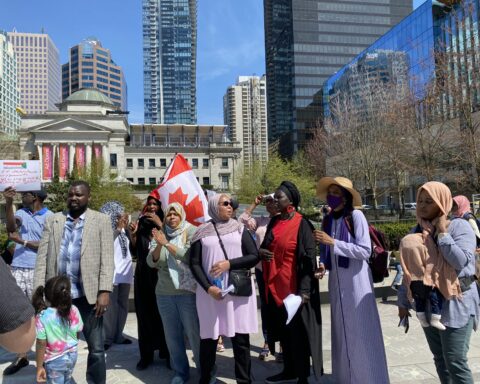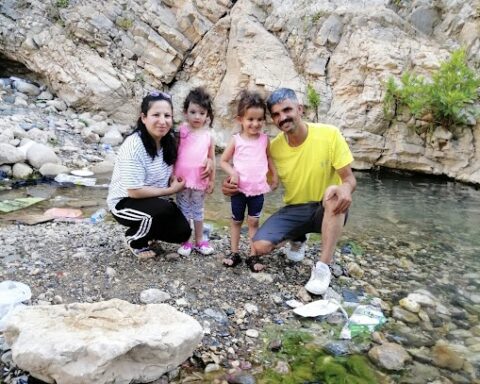The West needs to stop intervening in the Middle East and allow Bashar al-Assad to regain control of Syria if it has any hope of stabilizing the region over the long-term, a panel of diplomats and policy-makers at the Conference of Defence Associations Institute’s Conference on Defence and Security said Thursday afternoon.
Intervention by Western countries aimed at combatting ISIS will succeed but it won’t stop the problem from happening over and over again in the future unless governments back away and allow the situation to work itself out organically, the foreign affairs experts said.
“Our solution is only throwing fuel on the fire. We have to bite the bullet on this one,” said Dr. Chris Kilford, Canada’s former defence attache to Ankara, Turkey. “When ISIS is gone there will be a vacuum. What happens the day the last fighter is gone? Hopefully one day Assad will go, but we need stability to solve the problems in the region.”
Until the warring regions are able to become economically and socially stable, extremism will continue to breed among alienated young people…
Michael Bell, a former ambassador to Jordan, Egypt and Israel, and Anthony Cordesman, the Arleigh A. Burke Chair at the Centre for Strategic and International Studies, agreed with Kilford and said the problems in conflict-riven countries in the region are not driven so much by religion but rather by the alienation of young, angry men who are drawn to fight for a cause bigger than themselves.
And while the West has a clear short-term strategic objective in mind as it works to root out ISIS, it is not seeing the bigger picture of how best to bring stability to the region for long-term peace, Cordesman said.
“Destroying the Islamic State is a strategic objective. The air campaign may do that but it won’t bring stability,” he explained.
One audience member compared to situation in the Middle East to what happened in Western Europe when the Roman Empire fell.
After centralized power disintegrated in the fifth century AD, a vacuum opened up and power became more localized in the hands of ethnically-unified barbarian groups like the Vandals and Visigoths, which established their own fiefdoms and kingdoms from the ashes of the Empire.
At the same time, the Eastern Roman Empire remained intact for another several hundred years, with power based in Constantinople – or as it’s known today, Istanbul.
“The [Western] Empire fell because it couldn’t resolve the economic, social or cultural issues,” Cordesman said, noting that countries like Morocco and Algeria are more likely to remain intact in the same way the Eastern Roman Empire did. “That’s what we are seeing now.”
A big part of the problem is that the West is currently trying to use its own models of federalism as a way to hold the warring regions together.
“Our solution is only throwing fuel on the fire. We have to bite the bullet on this one,” said Dr. Chris Kilford
However, it’s missing the glue to hold its plans together — which is social cohesion and integration, Bell said.
“The situation in the Middle East is like warring little state-lets, like how things were in the Middle Ages,” he said. “I’m worried by the fact that I don’t see the glue that will bind these little warring factions together. It worked in Egypt because they shared a nationality but most other parts of the region don’t in the same way.”
Until the warring regions are able to become economically and socially stable, extremism will continue to breed among alienated young people, the panelists said.
By continuing to jump in and attempt to impose solutions that have worked for the West, panelists said governments are fostering a future of continued violence and strife.
“It’s a constant cycle of intervention in the Middle East,” said Kilford. “The question is, will it ever stop?”
Re-published with permission.




